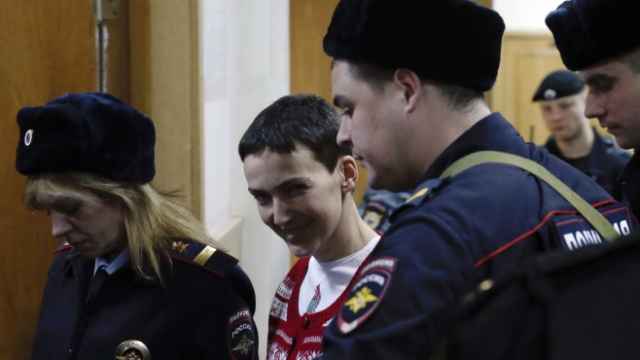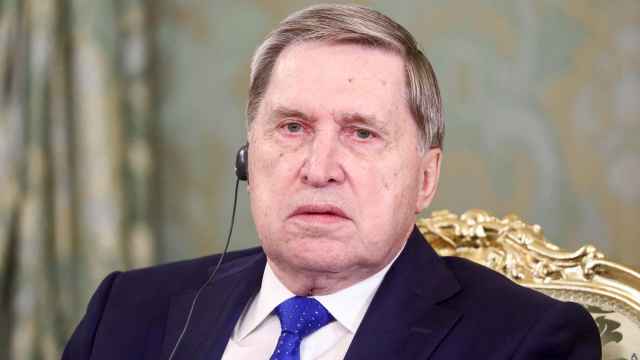Russia will not exchange Ukrainian captive pilot Nadezhda Savchenko for her sister, as it would be equivalent to hostage-taking, Kremlin spokesman Dmitry Peskov told the Interfax news agency on Tuesday.
"Savchenko's sister appealed to President Vladimir Putin to allow her to trade places with her in the pretrial detention center," Peskov, who spoke to the sister in person, told Interfax.
"We responded that the investigation is ongoing, and that under our law we do not take such actions, which can be compared to hostage-taking," he said.
Savchenko, who is accused of involvement in the deaths of two Russian journalists in war-torn eastern Ukraine last year, was on a hunger strike from Dec. 12 until March 5, when she stopped it due to severely deteriorating health. On Monday the pilot said she would resume the hunger strike, according to a statement by the Ukrainian Foreign Ministry.
The Ukrainian prosecutor general has passed Moscow information that "gives investigators a plausible excuse [to release Savchenko]," Interfax cited Savchenko's lawyer Mark Feigin as saying Wednesday.
Feigin did not reveal the contents of the documents.
Moscow accuses Savchenko of abetting the killing of the two Russian journalists who died during an artillery strike last summer. She was captured by pro-Moscow forces in eastern Ukraine and handed over to Russia this summer.
Kiev and Western governments have urged Moscow to release the pilot, who has emerged as a symbol of resistance to Russia in her home country. Since her July arrest she has been elected to the Ukrainian parliament and also became a member of the Ukrainian delegation to the Parliamentary Assembly of the Council of Europe.
Ukraine's President Petro Poroshenko has called for the "serious condemnation of Russia's actions in illegally holding on its territory several hostages, including Nadezhda Savchenko," Interfax reported Tuesday.
A Message from The Moscow Times:
Dear readers,
We are facing unprecedented challenges. Russia's Prosecutor General's Office has designated The Moscow Times as an "undesirable" organization, criminalizing our work and putting our staff at risk of prosecution. This follows our earlier unjust labeling as a "foreign agent."
These actions are direct attempts to silence independent journalism in Russia. The authorities claim our work "discredits the decisions of the Russian leadership." We see things differently: we strive to provide accurate, unbiased reporting on Russia.
We, the journalists of The Moscow Times, refuse to be silenced. But to continue our work, we need your help.
Your support, no matter how small, makes a world of difference. If you can, please support us monthly starting from just $2. It's quick to set up, and every contribution makes a significant impact.
By supporting The Moscow Times, you're defending open, independent journalism in the face of repression. Thank you for standing with us.
Remind me later.






